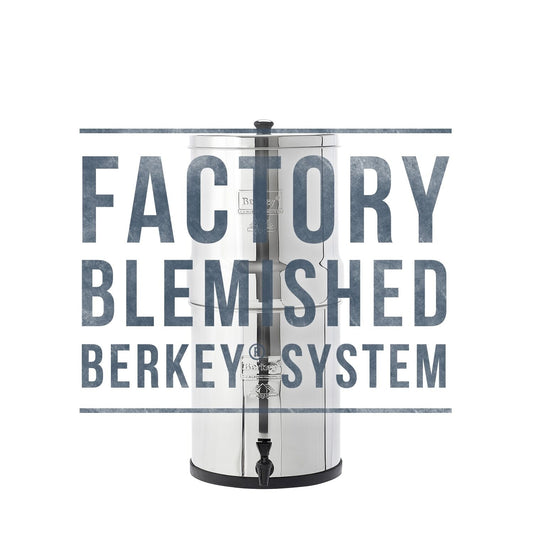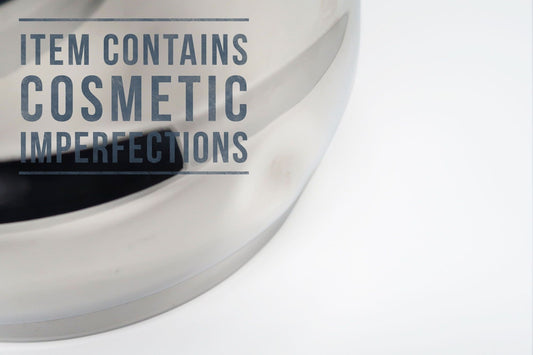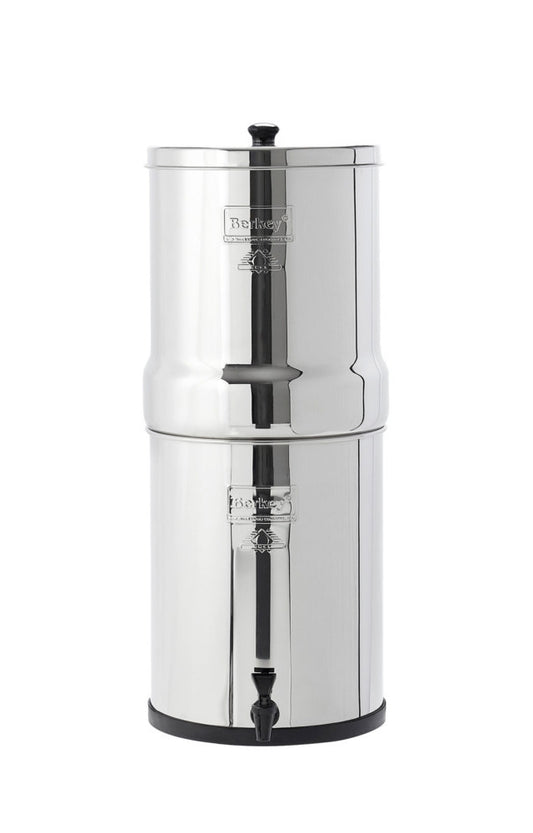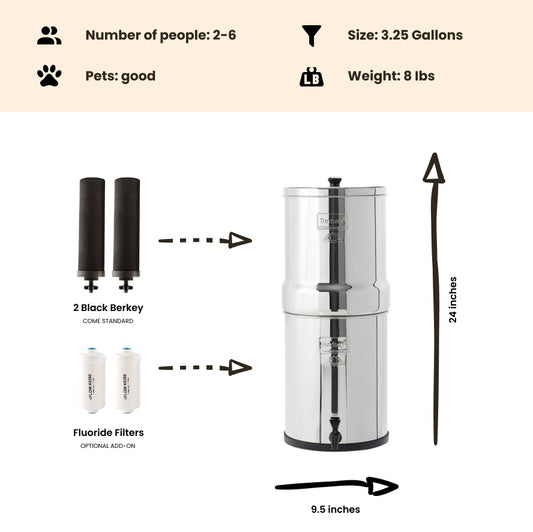
Big Berkey Water Filters 2019 Scholarship Winner Announced!
By Dan DeBaunShare
We'd like to congratulate our 2019 $1000 Big Berkey Water Filters College Scholarship. The winner this year was Hannah Gilmore who is attending NC State University, majoring in International Studies with a Concentration in Global Sustainability and Development with a Minor in Environmental Science. We'd also like to express our thanks to to all who applied for this scholarship. Below is Hannah's essay entry.
Improving Global Water Standards: A Multi-dimensional Problem
A human being can survive a year in isolation, three months without companionship or love, three weeks without food, eleven days with no sleep, but only three days without water. Because water is vital to human life, we must ask ourselves, why hasn’t there been more attention brought to the fact that global water quality is rapidly declining.
In an article published by the American Chemical Society, Julie Beth Zimmerman (professor of Chemical & Environmental Engineering), categorizes global water stressors into five classifications: energy generation and climate change, population, land use, urbanization, and economic growth. As made apparent through the diversity and ambiguity of these categories, improving water quality is a multi-dimensional problem that requires multi-dimensional solutions. Water pollution can come from bacteria and nitrogen from livestock and pet waste, plastic debris can be thrown into waterways by wind, storms or irresponsible placement of waste, and runoff containing sediment from exposed areas of dirt or gravel and fertilizers, pesticides, and herbicides from farms and homes are typical in both rural and urban areas. Oil and toxic chemicals from cars and industry corporations as well as spills and leaks from oil pipelines and hydraulic fracking are a common problem worldwide. Water pollution can also occur through the water pipes themselves if the water is transported through a lead pipe and arsenic is typical water pollutants stemming from improper disposal of industrial waste. In short, every sip of water that one takes has most likely been through a copious amount of treatments and filtration systems to 2 merely reduce the concentration of contaminants, ensuring that the pollutants in drinking water across America are under the legal limit. Between 2004 and 2019, the Environmental Working Group studied and recorded 20 million tap water quality tests; they found a total of 316 contaminants in public drinking water (Environmental Working Group). Through this study, it was discovered that the Environmental Protection Agency only actively regulates 114 of these pollutants, “setting maximum legal levels that water utilities achieved 92 percent of the time” (Environmental Working Group). This means that 202 identified, unregulated pollutants and chemicals can be found in our drinking water at any given time.
According to an article published in National Geographic, written by Christina Nunez, the primary source of water pollution for the United States comes from non-point pollution (Christina Nunez). This is a problem because instead of coming from a small number of primary causes that have the potential to be regulated, water is being polluted through multiple, minor sources that have a disastrous collective effect. This is why improving water quality worldwide will require an indefinite-step plan, attacking the problem from several different angles. Possible solutions should come from a variety of dissimilar disciplines. Such solutions includeinnovations in technology such as water desalination, long-distance transfer of water, and technology aimed at reducing wasted water. Government intervention including funding, policy,mandatory caps on water pollutant, voluntary programs aimed at waste reduction, and regulatory incentives aimed at increasing interest in lowering pollutant levels throughout the industrial world would play a massive part in improving water quality. In addition, mandatory programs implemented in schools about reducing water use, reducing plastic waste, and teaching other environmentally safe lifestyle practices would have an enormous positive consequence. While 3 the worldwide water quality crisis will require participation from all disciplines and aspects of life, there is a single, influential action that can be taken to set off a chain-reaction of efforts aimed at improving the global water standard. That single action would be increasing public awareness.
As the media has been preoccupied with news coverage of political candidates of the 2020 election, healthcare debates over abortion and the international coverage of the Sudan crisis, concern over global water quality has been pushed to the back burner. Even though the United Nations declared improving “availability and sustainable management of water and sanitation for all” (Transforming Our World) as the sixth goal in the 2030 Agenda for Sustainable Development, improving the global water standard has not been labeled as an international crisis. Simply put, the media acts as a value in which the public is only exposed to the issues the media deems as most important. By no means should the spotlight be taken off of these major global issues including the debating over universal healthcare or the crisis in Sudan, the rapidly declining quality of our drinking water should simply be added to the pressing list of global problems.
Even though the media controls most of what the public views, there is one form of media that is revolutionary, social media. With the introduction of social media came an increase in accessible platforms in which a person could advocate for a better life, equal rights, and where merely expressing individual opinions and perceptions became effortless and attainable. The accessibility and instantaneous rate at which information can be shared on the Internet became even more prominent with the development and popularity of major social media platforms such as Twitter, Instagram, Snapchat, and Facebook. In a matter of minutes, any individual can reach 4 millions of people worldwide. If awareness over the declining water quality crisis is spread over social media, then a chain-reaction of efforts aimed at improving the global water standard will follow. With pressure from the public, government and industry will have no choice but to change their policies and regulations over the water quality issue, ensuring that safe, accessible and clean water is available to people worldwide.
5 Works Cited Environmental Working Group. “Press Release: Updated Tap Water Databases and Drinking Water Quality Analysis.” EWG , www.ewg.org/news/news-releases/2009/12/09/press-release-updated-tap-water-databases-and-drinking-water-quality.Luntz, Taryn. “U.S. Drinking Water Widely Contaminated.” Scientific American, 14 Dec. 2009, www.scientificamerican.com/article/tap-drinking-water-contaminants-pollutants/.
Nunez, Christina. “Freshwater 101: Pollution.” Water Pollution Facts and Information, National Geographic, 16 Mar. 2010, www.nationalgeographic.com/environment/freshwater/pollution/.
“Transforming Our World: the 2030 Agenda for Sustainable Development .:. Sustainable Development Knowledge Platform.” United Nations, United Nations, sustainabledevelopment.un.org/post2015/transformingourworld.
-
Regular price From $302.00 USDRegular priceUnit price / per
-
Regular price $234.00 USDRegular priceUnit price / per
-
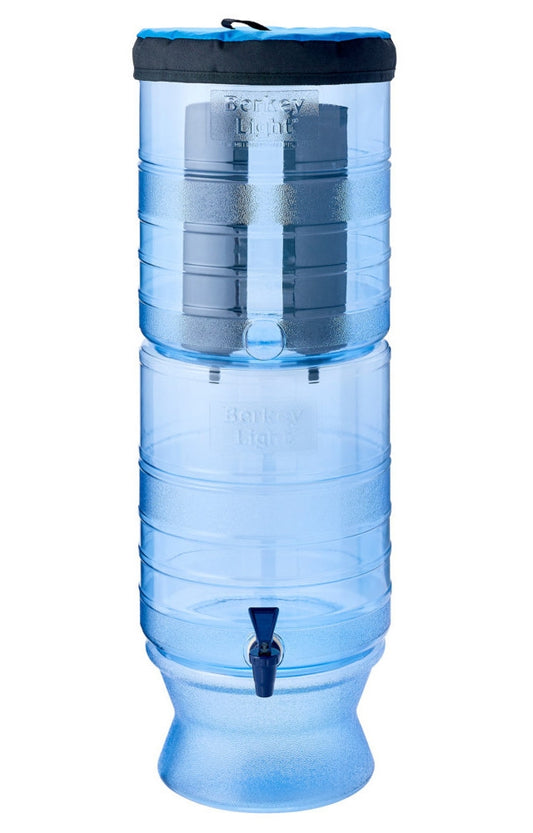
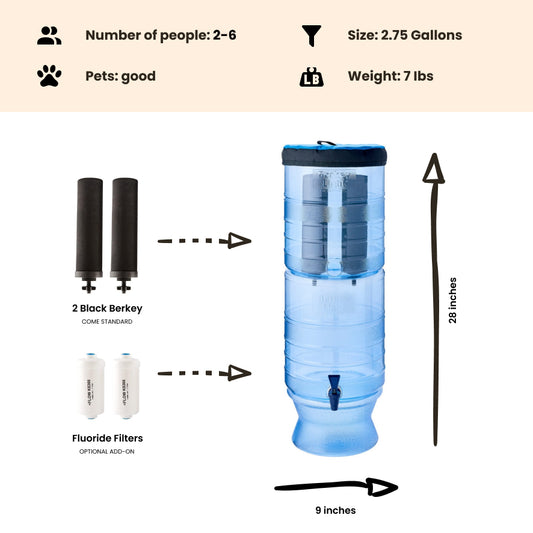 Sold outRegular price From $305.00 USDRegular priceUnit price / per
Sold outRegular price From $305.00 USDRegular priceUnit price / per -
Regular price $327.00 USDRegular priceUnit price / per
-

 Sold outRegular price From $367.00 USDRegular priceUnit price / per
Sold outRegular price From $367.00 USDRegular priceUnit price / per -
Regular price From $408.00 USDRegular priceUnit price / per
-
Regular price From $451.00 USDRegular priceUnit price / per

Dan DeBaun
Dan DeBaun is the owner and operator of Big Berkey Water Filters. Prior to Berkey, Dan was an asset manager for a major telecommunications company. He graduated from Rutgers with an undergraduate degree in industrial engineering, followed by an MBA in finance from Rutgers as well. Dan enjoys biohacking, exercising, meditation, beach life, and spending time with family and friends.
~ The Owner of Big Berkey Water Filters


